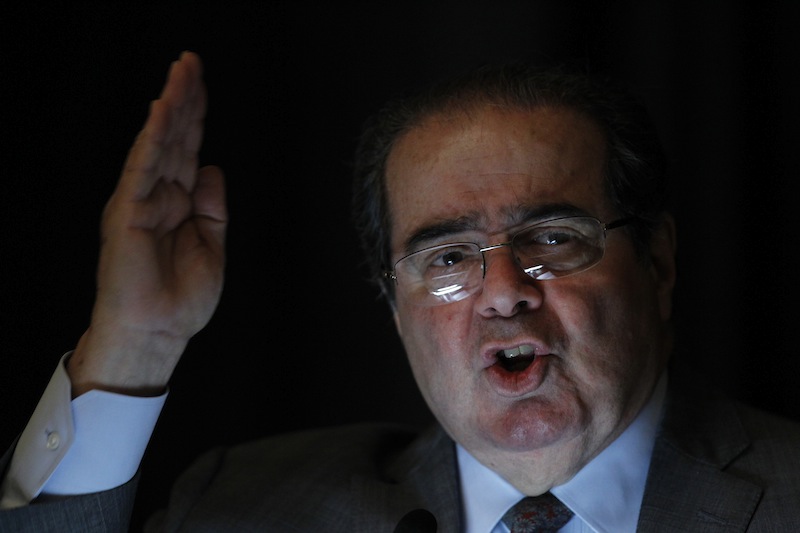In expressing his deep skepticism Wednesday for the constitutionality of a centerpiece of the Voting Rights Act, Justice Antonin Scalia questioned the motivations of Congress for repeatedly reauthorizing it since it was initially passed in 1965.
“I don’t think there is anything to be gained by any Senator to vote against continuation of this act,” Scalia said during oral arguments in Shelby County v. Holder. “They are going to lose votes if they do not reenact the Voting Rights Act. Even the name of it is wonderful — the Voting Rights Act. Who is going to vote against that in the future?”
At issue was the constitutionality of Section 5 of the 1965 law, which requires state and local governments with a history of racial discrimination to pre-clear any changes to their voting laws with the Justice Department prior to enacting them.
Congress has renewed the law four times, most recently in 2006 for a period of 25 years. The margin of victory was 98-0 in the Senate and 390-33 in the House.
Scalia attributed the repeated renewal of Section 5 to a “perpetuation of racial entitlement.” He said, “Whenever a society adopts racial entitlements, it is very difficult to get out of them through the normal political processes.”
Justice Sonia Sotomayor, who asked many questions in defense of the law, appeared taken aback by Scalia’s insinuation. In the final moments of oral argument, she asked Bert Rein, the lawyer for the challengers, if he agrees.
“Do you think think Section 5 was voted for because it was a racial entitlement?” she asked. When he ducked the question, she asked it again. He did not endorse Scalia’s sentiment.
The Reagan-appointed jurist said lawmakers keep reauthorizing the Voting Rights Act out of fear of political repercussions. In a sarcastic tone, he described it as odd that congressional renewal has passed with growing margins over the years in spite of the fact that racism is widely acknowledged to have become less severe in the covered jurisdictions since 1965.
The core struggle in the case is between the 14th Amendment, which guarantees equal protection under the law, and the 15th Amendment, which tasks Congress with enforcing a ban on discriminatory voting laws.
Scalia signaled that he fears Section 5 will be repeatedly reauthorized into perpetuity, regardless of whether it’s justified, unless the courts step in.
“This is not the kind of question you can leave to Congress,” he said.






